- Hebrew Language Professor at Cairo University: synagogues are associated with a certain period of time in Egypt’s history, stressing that renovating these temples and ancient Jewish monuments as part of the Egyptian state’s preservation project is important.
- Former head of Antiquities Sector in Egypt: “Egypt is a touristic country. It has many monuments from pre-Pharaonic eras, and renovating antiquities in order to preserve them is part of the Egyptian state’s plans”
- Oriental Languages Professor at Cairo University “The Jewish temples are part of Egyptian heritage.”
Once upon a time, Egyptian Jews were a part of the country’s melting pot and lived harmoniously among all walks of life. They greatly contributed to Egypt’s economy, society and culture and have left their mark on Egyptian history.
The Jewish Quarter in central Cairo is a time capsule that has preserved this society’s accomplishments; as such Al-Majalla toured the Quarter and talked with some of the elders that still live there. Al-Majalla asked the residents to share their views on the Egyptian government's decision to renovate Jewish temples and monuments, thereby preserving the legacy of Jewish ancestry in Egypt. To gain an academic perspective on the renovations, Al-Majalla also met a number of experts on Jewish affairs
JEWISH CONTRIBUTION TO EGYPTIAN HISTORY
At one point in time, Jews were an integral part of Egypt’s life, said Professor of Hebrew Language and its Literature in Cairo University’s Faculty of Arts Dr. Najla Raafat Salem, who is also director of the University’s Center of Oriental Studies.
She said synagogues are associated with a certain period of time in Egypt’s history, stressing that renovating these temples and ancient Jewish monuments as part of the Egyptian state’s preservation project is important.
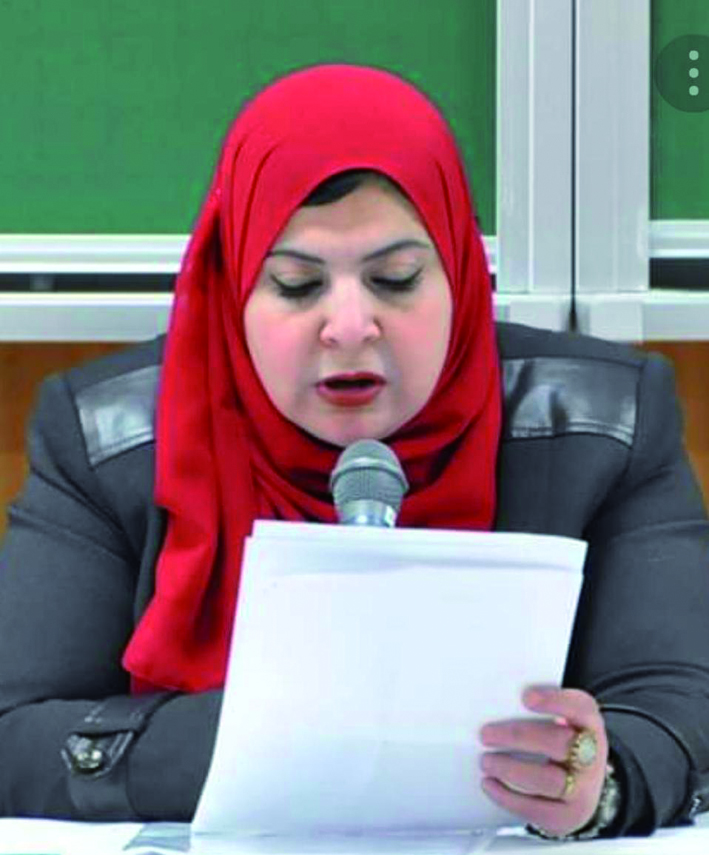
SIGNS OF RECOVERY
Salem has further stated that these efforts will send an important message to the West regarding security and safety in Egypt, emphasizing that in spite of the hard times the country is going through it remains one of the biggest tourist destinations in the world.
“This will affirm that Egypt has strongly recovered and is able to have a great influence in various fields, including tourism while maintaining its historical and cultural glamor,” she explained.
TOURISTIC ASSETS
It is common knowledge that tourism makes up a large portion of Egypt’s annual GDP. Luckily, Egypt has many touristic assets such as religious monuments. While Egypt’s mosques and churches are well known, its synagogues have fallen into obscurity over the years.
“Specialist advice and historical accuracy are needed for the proper renovation of these temples,” Salem said.
She explained that this includes reviewing all that has been written about Egypt’s synagogues, knowing their origins and their different types.
NATIONAL TREASURES
“Study, examination, and scrutiny are important factors in the process of renovation and marketing for the idea. If done right, these temples can be national treasures for Egypt which would push the tourism sector forward,” Dr. Najlaa said.
“All existing temples should be carefully documented, not just the famous ones,” she said when asked about the best way to achieve effective preservation.
She added that concerned parties should review everything related to temples and Jewish monuments that are considered among the country’s archaeological treasures.
Salem stressed that the project has the potential to attract the interest many people across the globe, as such the state should try market the project to both of ancient Egyptian antiquities and Jews from various world countries, such as the United States and those in Europe.
She also pointed to the importance of this step in reviving the tourism sector in Egypt, which has only recently begun to recover.
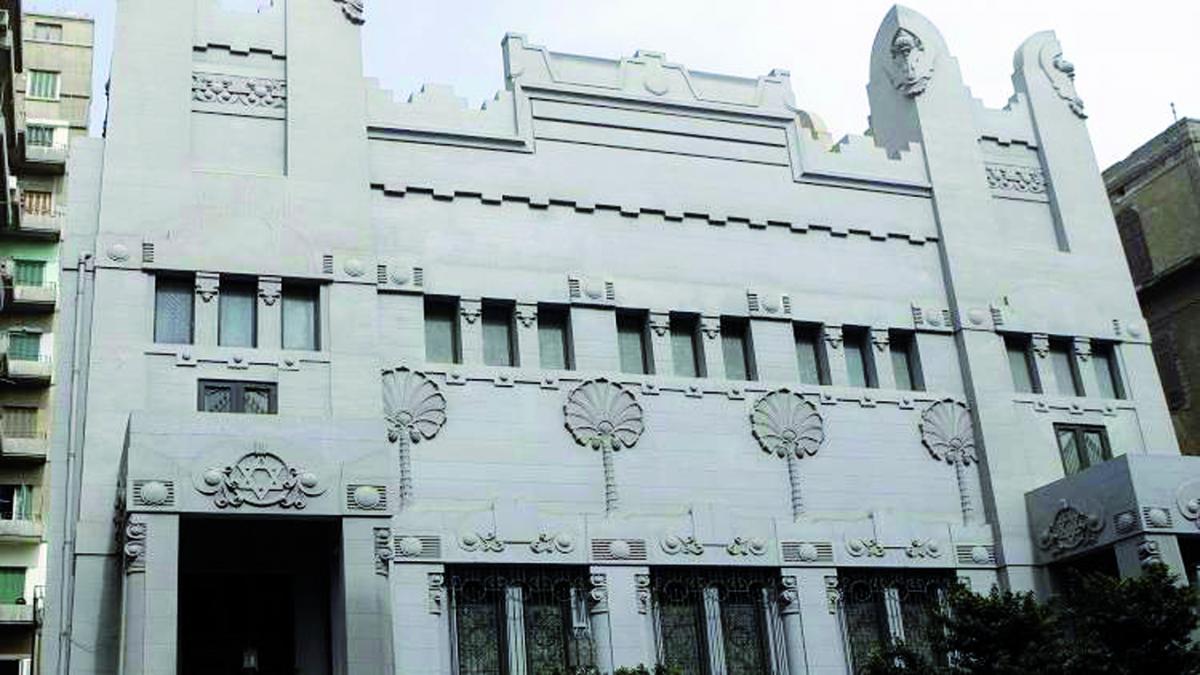
PART OF EGYPTIAN HERITAGE
“The Jewish temples are part of Egyptian heritage,” Professor at the Department of Oriental Languages at Cairo University’s Faculty of Arts Dr. Abdel Wahab Alloub told al-Majalla.
“Some Egyptian Jews still reside in Egypt. Sure, they are few in numbers, but there are still Jews who live in Egypt and consider it their home,” he stressed. He further pointed out the importance of renovating the temples and the existing monuments since they will yield an economic return that will contribute to the revival of the tourism sector.
“Religious coexistence has long been a staple of Egyptian society, and we have been living in a society in which neighbors never asked each other their religious beliefs,” he noted, adding that Egypt is among the prominent countries with interreligious tolerance.
Alloub also told us that “History of Religions” is a subject taught in Egyptian universities’ faculties of arts.
He explained that this subject introduces this history to students through an academic study rather than a religious one, adding that there are many studies in the faculties of archeology that explain this subject very deeply through academic writings.
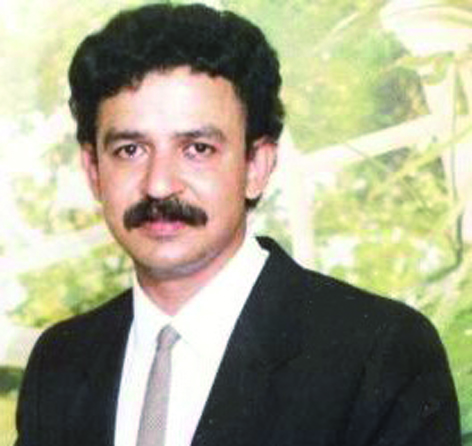
PART OF WORLD HERITAGE
The former head of Egypt’s antiquities sector Farag Fada told al-Majalla that the Egyptian State, represented by the Ministry of Antiquities, is renovating the registered Egyptian monuments through a plan that is part of the Ministry's projects sector.
The renovation process is limited to registered antiquities, he said, stressing that the renovation is part of the Ministry’s strategy regardless of the religious background of the monuments, whether it is an Islamic mosque, a Christian church or a Jewish temple.
“Egypt is a touristic country. It has many monuments from pre-Pharaonic eras, and renovating antiquities in order to preserve them is part of the Egyptian state’s plans,” explained Fada.
He said this project would revive the tourism sector and retain an integral part of the world heritage represented by Egyptian monuments.
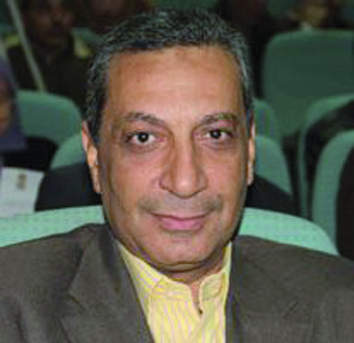
THE RICH HISTORY OF JEWS IN EGYPT
The history of Jews in Egypt is vast. In the late 12th century, Cairo was the world’s most important Jewish center, but only a few Jews remained in the country after the 1967 war.
Many of the rich Jewish families’ villas located on the Nile River’s banks have been transformed into museums and embassies.
Today the Jewish community in Egypt consists of fewer than 10 individuals. This community, according to Egyptian historians’ accounts, was part of the society’s fabric just like Copts and Muslims.
No one pushed the Jewish communities out of Egypt, but many historians have stated that many Jews started leaving after the nationalization process in Egypt in 1961. But, this wasn’t a kind of discrimination as the process was carried out against all Egyptian capitalists, regardless of their religion.
Many of them also migrated because they were persecuted for joining the Egyptian Communist movement, yet they were not alone since Muslims and Christians were also persecuted for their communist affiliations.
Those who remained in Egypt enjoyed all their rights; as such Western theories about nationalization being the main driving force behind Jewish mass emigration are baseless.
FACTORS BEHIND JEWISH MIGRATION
Egyptian historians attribute the migration of Jews from Egypt to several factors. These include the occupation of Palestine and their personal choice to live in the new Jewish state and the fact that many of them converted to Islam.
Moreover, the leaders of the July Revolution tried to reassure the Jews about their future in Egypt. Mohammed Naguib, the first president, visited the headquarters of the Jewish community and some of its institutions, such as the Jewish hospital in Cairo.
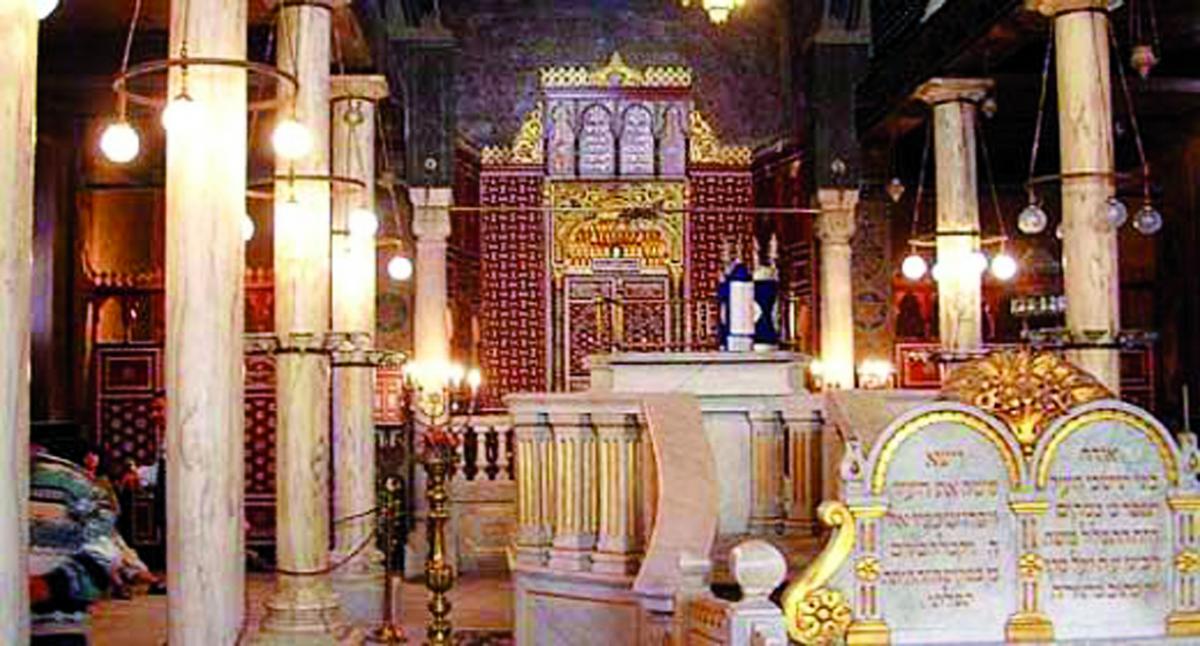
Egyptian Jews were not a single bloc. They came from different cultures and movements of multiple ethnic and racial origins. In spite of this, Egypt, according to many Knesset members, was a great homeland for Egyptian Jews of all sects.
SECTS OF JEWS THAT LIVED IN EGYPT
Jews of Egypt were divided into two sects. The first one is the “Rabbanites,” the largest community to which most of the world’s Jews belonged to. They believe in the Torah and the Talmud, which is the commentary on the matters of faith, law and religious history.
The second sect is the “Karaites” Jews who only believe in the Torah and the “Old Testament” and don’t believe in Talmud. Most of them were poor and lived in Cairo. They worked in various professions; including labor, business and banking and they sent their children to Egyptian schools. This sect dissolved into the Egyptian fabric and did not respond to any sectarian calls from abroad. Egypt also had other Jewish sects such as the Sephardim, aka Orientalists, who lived for long periods in Eastern countries, including Egypt, Ashkenazim, who arrived from Eastern Europe.
Karaites, along with some Rabbanites, lived in Egypt for centuries and most Jews from those sects worked as laborers, craftsmen, shop owners, artists, and doctors. Jews of that certain sect were Egyptian through and through as they spoke Egyptian Arabic and looked just like Egyptian Muslims and Copts. They also didn’t live in any ghetto like Jews from Eastern Europe.
TRUE TOLERANCE TOWARDS JEWS OF EGYPT
Jews of Egypt have lived in true tolerance for centuries and were among the wealthiest and most stable Jewish communities in the world. They didn’t experience oppression like the Jews of Europe, thus they added much to the country’s culture, arts and economy. Cattaui Pasha was immersed in political activity and became Minister of Finance then Transportation after the 1919 revolution. He was a member of Egypt’s House of Representatives until his death.
Names such as Felix and Henry Mosseri and Jewish family names such as Harari, Ades, Suares, Samouha, Cicurel, and others were prominent. In addition, there was a group of Jewish-Egyptian artists who influenced the country’s artistic life which included Raqiya Ibrahim, Dawood Hosni, Leila Mourad, Yacoub Sanoua, Togo Mizrahi and Nagwa Salem.
MAJOR EVENTS THAT CHANGED JEWISH LIFE IN EGYPT
Three major events changed everything for the Jews living in Egypt. The first event took place with the advance of German troops in Western Egypt, during World War II. At the time, the Jews of Egypt feared that Germans would win the war and oppress them, so they fled to South Africa. The rise and prominence of Hitler’s Nazi ideology caused a rise of anti-Semitism around the globe.
The second major event was the 1948 war, which caused a surge in Jewish identity politics and instilled a desire within many Jews to migrate to the Promised Land and live in what would eventually become Israel.
The last event happened in the wake of the 1956 war when nationalization decisions were issued and many Jews feared the prospect of losing their properties. They preferred to leave Egypt and smuggle their money through a secret network that was used to smuggle Egyptian Jews to Europe and to occupied Palestine.
In a tour inside one of the most crowded areas in Cairo, and perhaps in the world, Al-Majalla tried to investigate everyday life in Egypt's modern history. We went to the Jewish Quarter’s neighborhood in which Jews of Egypt live along with many other Egyptians and make a living in trade.
Al-Majalla also met with a number of people who have shared many memories with Jews in this neighborhood. They said they all lived together, experienced joys and sorrows and came together on all occasions as one family that hasn’t been separated by religion.
They also praised the Egyptian government’s step to renovate their temples as an inherent right since they were a part of Egypt’s social fabric during a significant historical stage. They said this project sends an important message on the coexistence of religious groups in Egypt.
AN AMICABLE RELATIONSHIP
Mogahed Ibrahim is an old resident of the Jewish Quarter. He and his family have been closely associated with Jews throughout his life in the neighborhood.
“Jews have been living among us in the area, and we had many Jewish neighbors. They were distinguished by their kindness and never saw anyone differently because of their religion,” said Ibrahim.
“We shared good neighborship with them, and we celebrated each other’s holidays in a loving atmosphere.”
“They were even very honest in their dealings, and we didn’t experience any troubles as neighbors and people living together,” he stressed.
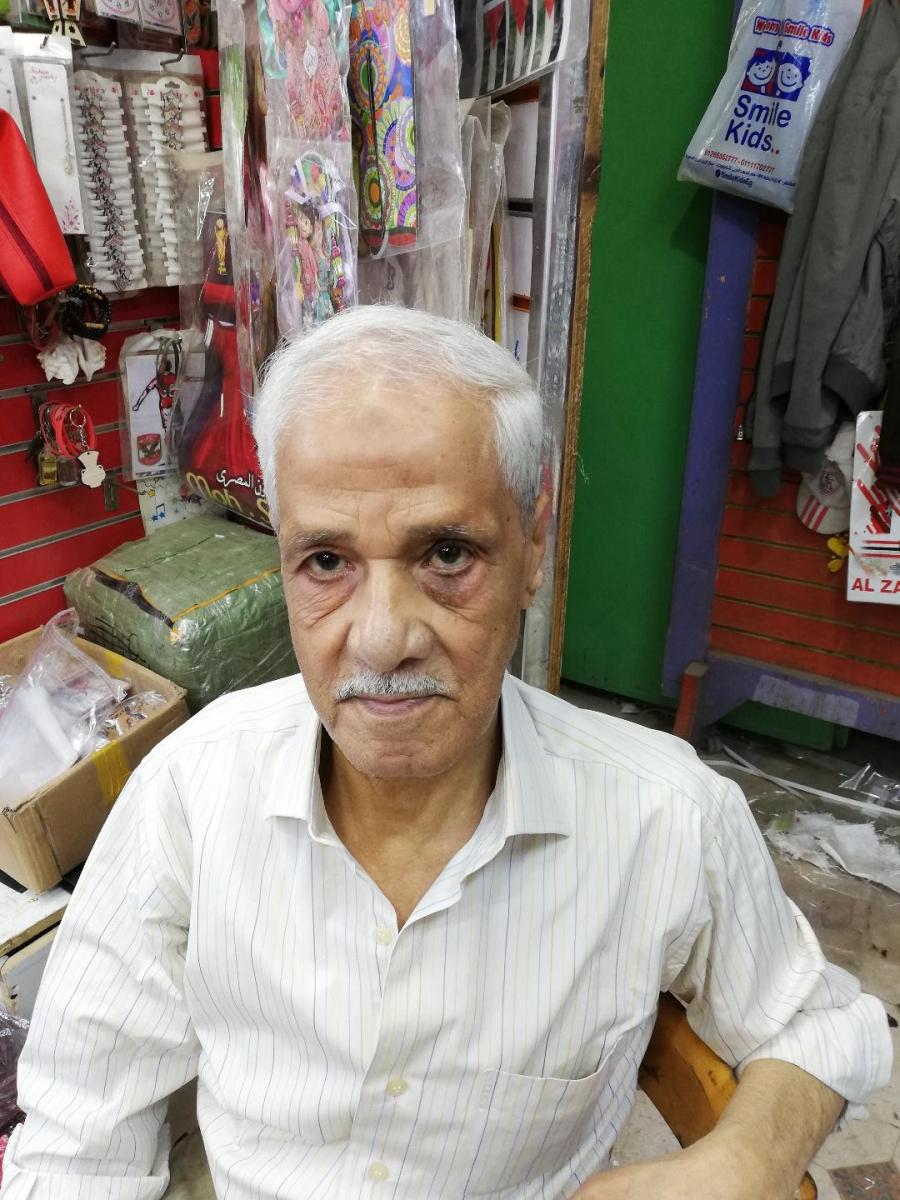
WE RESPECT ABRAHAMIC RELIGIONS
When asked about his opinion in renovating Jewish temples, Ibrahim said: “We respect all Abrahamic religions, and this is one of their rights.”
“Religion is to God alone, and every person has the right to freely practice their beliefs in a tolerant society.”
He went on to describe his amicable relationship with his neighbors.
“There was no kind of enmity between us, and they have always been honest in their trade activities and in everyday life in general. They were loved by everyone, and they owned shops and different grocery stores,” he explained, adding that coexistence with them had been distinct.
When asked about the most important professions Jews used to practice in the country, Ibrahim said many of them owned and worked in gold and jewelry stores in central old Cairo, which are still present to date.
“They owned shops for selling food and drinks and I remember Naguib and Thabit stores in the Jewish Quarter. They were brothers and partners in some trade and food production. Naguib insisted remaining in Egypt and staying Egyptian so he converted to Islam when other Jews were preparing to leave the country.”
A DISTINGUISHED PARTNERSHIP
Sherif Abu Ahmed owns a shop in the Jewish Quarter in which he sells children’s accessories and toys. He lived among Jews when they were part of Egyptian society. He has been living there for many years now, and his father had a partnership with a Jewish food dealer. Abu Ahmed described their partnership as “good,” adding that various movies and series portrayed this community negatively.
When asked about Egypt’s step to renovate their temples, he told Al-Majalla that this is a positive step taken as enmity with some Jews is not based on religion.
“We all believe in the Prophet of God, Moses, and in all religions. Thus, we don’t have any problem with renovating their existing temples.”
“I live near the large Jewish temple in Adli Street. The temple was there before I was born, and it was the official temple for the Jews,” he explained, pointing out that there is more than one small temple in central Cairo.
He said two Jewish ladies used to live in the neighborhood, but they had died. The neighborhood was also home to another Jewish man who had converted to Islam and married a Muslim woman, but he passed away 25 years ago.
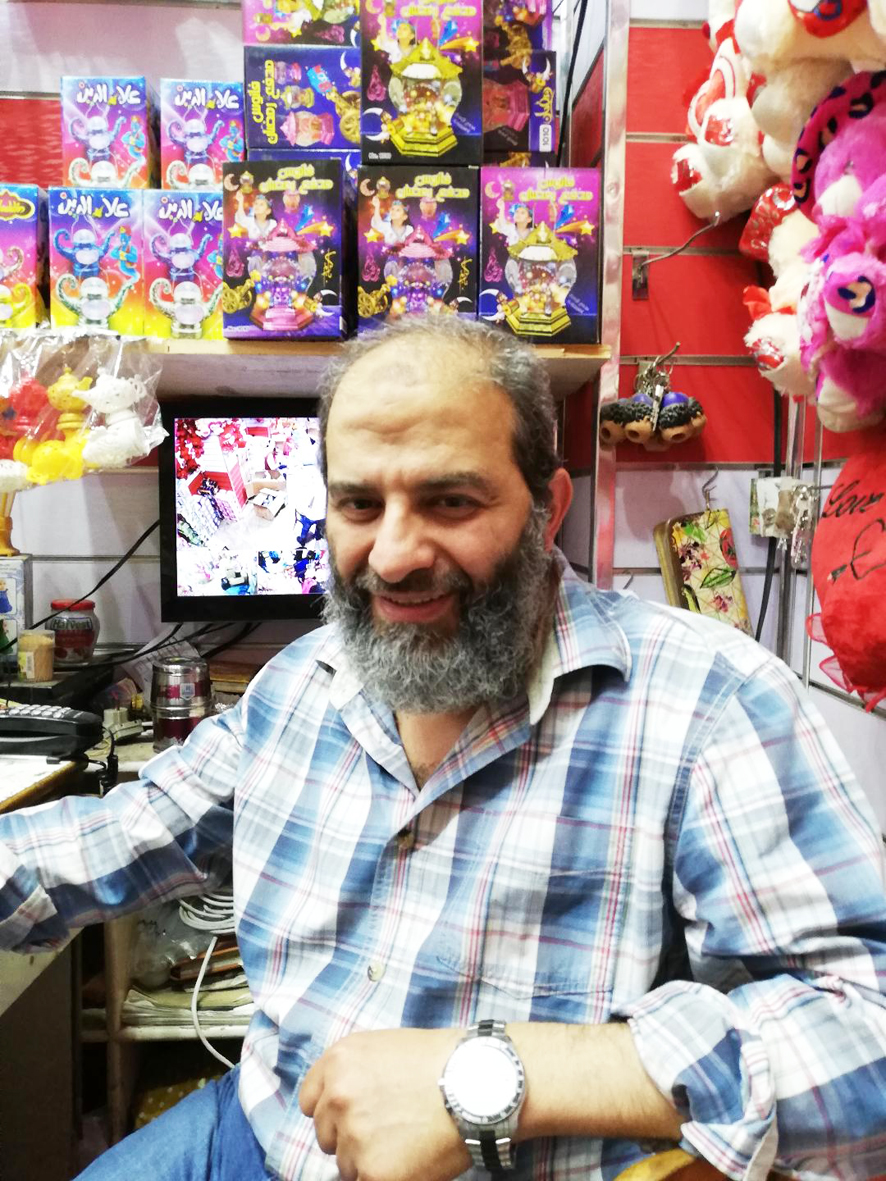
ONE FAMILY
Khaled Mogahed is one of the Egyptian merchants living the Jewish Quarter for more than 50 years now, and he sells house appliances and accessories.
“I have been living in this neighborhood for decades, working with my father in trade, retail and wholesale business,” Khaled said.
“We lived normally as a family among Jews,” he told Al-Majalla, describing Jews as “respectful people.”
NOTHING BUT RESPECT
“We shared many businesses together in various sectors,” he said.
“My grandmother had a poultry shop, and they used to purchase chicken for the synagogues, and the dealing process was done with all respect.”
He said they were an essential part of society’s fabric. Coexistence was normal and the relationship was good.
POSITIVE IMPRESSIONS
Mogahed said renovating their temples is something positive since this is their right after being part of the Egyptian society’s fabric.
“All religions must be respected. They are all divine, and as Muslims, we must believe in all religions, being a condition of our faith.”
He pointed to the positive impressions that the Jews left on the people who have lived with them in the area, including his father. He said his father had told him many positive stories about his Jewish neighbors, stressing that everyone lived together without any discrimination.






